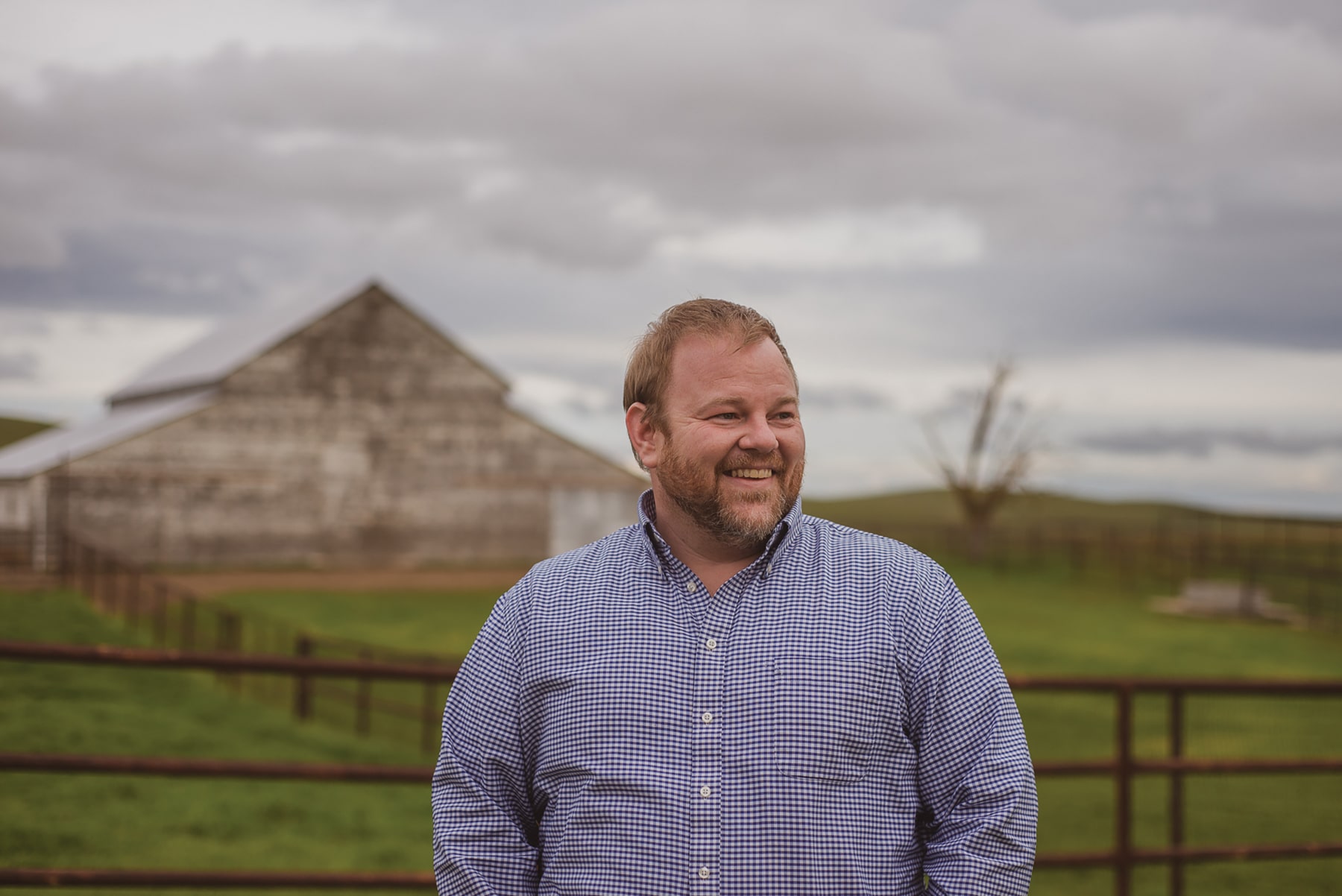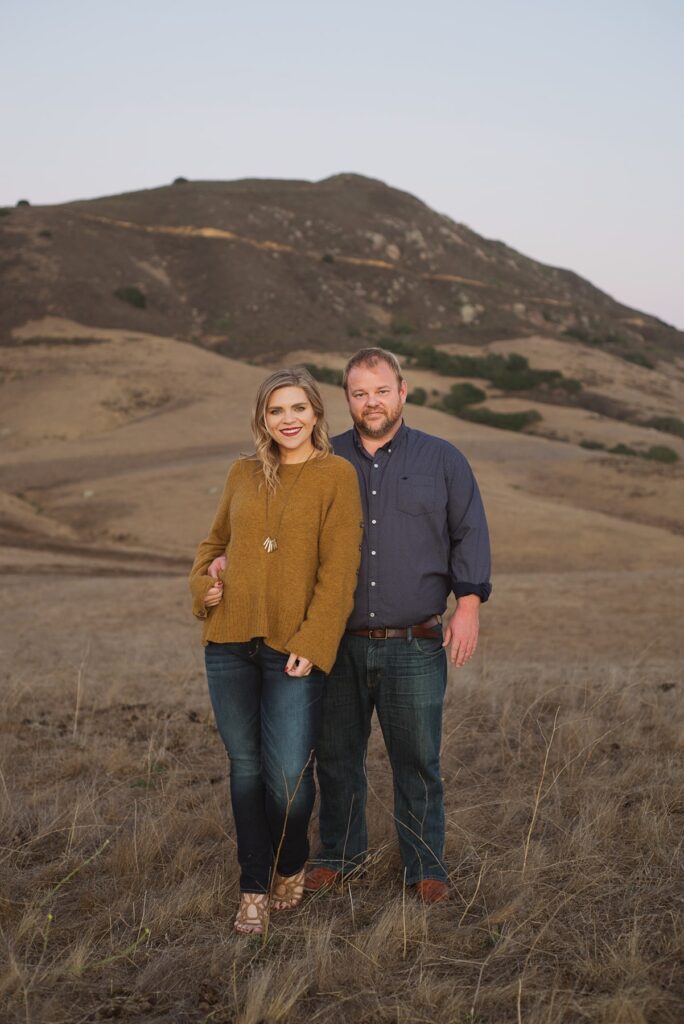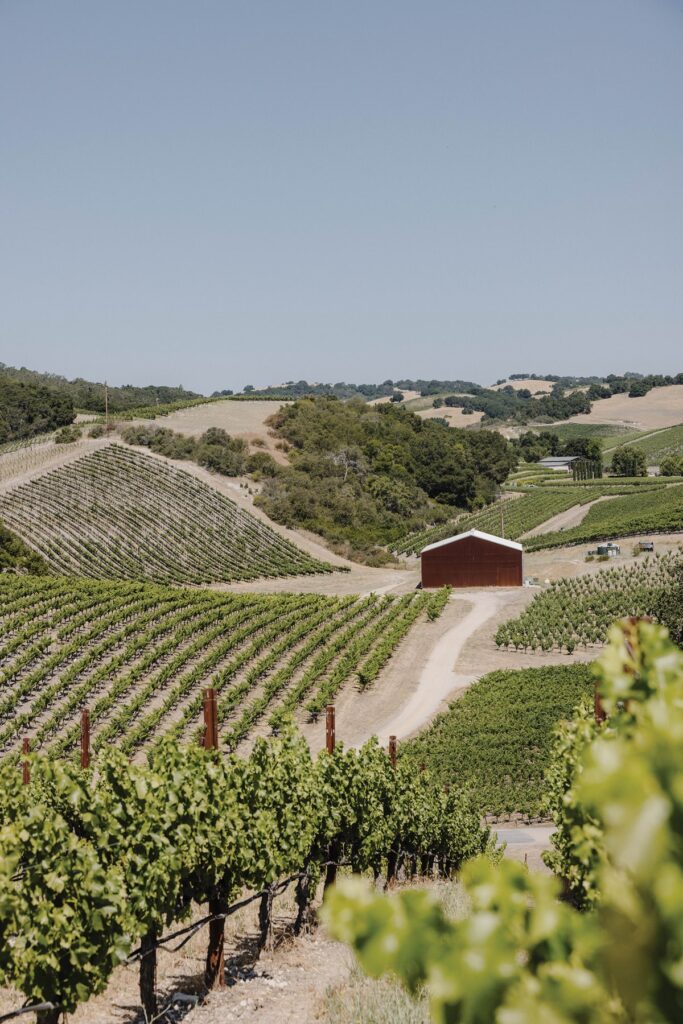
Perspective: Agricultural Heirlooms
By Brent Burchett, San Luis Obispo County Farm Bureau
In this Perspective article, San Luis Obispo County Farm Bureau Executive Director Brent Burchett offers insight into his work with local farmers and agriculture workers, their value to the county and state and his efforts to illuminate the industry’s hardships and shortcomings.
In my family, agriculture is the center of our life and identity. At the age of nine or 10, I was working in tobacco and running the seed cleaner on my family’s farm in Kentucky. We never took vacations growing up, but the big trip each year was going to Louisville for the Kentucky Farm Bureau annual meeting, where we’d get to stay in a hotel with a swimming pool. My parents still farm full-time in Kentucky and today, I’m proud to serve as Executive Director of the San Luis Obispo County Farm Bureau. It was actually love, not agriculture, that brought me to California. My wife is a sixth-generation rancher from the Carrisa Plains and we met at the Kentucky State Fair seven years ago. Not long before the pandemic, we moved back to her home community.

In 2021, the San Luis Obispo County Farm Bureau was named Farm Bureau of the Year. We’ve come a long way and grown to an impressive size since county farmers and ranchers banded together in 1922 to form our farm bureau. I can’t help wonder what they’d say if they could see the state of agriculture today.
Our agricultural forefathers would likely be awed by the abundance and diversity of commodities being produced on so few acres and by so few people. SLO County farm and ranch families now produce over $1 billion of agricultural commodities each year. Our world-class agriculture economy contributes $2.5 billion to SLO County each year and accounts for over 13,000 local jobs. With so few people directly involved in producing food today, they would probably find a worthy cause in their efforts to amplify agriculture’s voice by uniting farmers and ranchers into a single organization.
I’ve only lived in this county for three years, but I can’t help but notice our community often takes its farmers for granted. Agriculture is fundamental to what makes SLO County a special place to live. Imagine our viewsheds without agriculture. Picture our tourism without vineyards, vegetable fields, orchards and pastures.
Imagine if we had to rely on foreign nations to supply our food. Agriculture is a special industry worth protecting. More than any time in history, today’s farm families are doing more with less. We are a leader in production efficiency, using less water, fertilizers, labor and pesticides per unit of production than we ever have before. But the pressure to keep getting better is not going away. Our growing world population demands more food, and our climate challenges demand we produce it in an ever-more sustainable way.
Imagine if we had to rely on foreign nations to supply our food. Agriculture is a special industry worth protecting. More than any time in history, today’s farm families are doing more with less. We are a leader in production efficiency, using less water, fertilizers, labor and pesticides per unit of production than we ever have before. But the pressure to keep getting better is not going away. Our growing world population demands more food, and our climate challenges demand we produce it in an ever-more sustainable way.

As the name might suggest, SLO County Farm Bureau advocates for agriculture. We are a not-for-profit, grassroots membership organization, the policy positions of which come from our 700 member families and businesses of all sizes and different commodities. Our farm bureau story has been 100 years in the making. It’s a story of progress and social change, war and drought, a product of times that brought out the best and the worst in us. But at its heart, it’s a story of resilient local farmers and ranchers.
As residents of SLO County in 2022, we are blessed with an abundance of food all around us — in fields we drive by, the farmers’ markets and grocery stores we patron, and the food banks that serve our neighbors in need. But our grandparents can recall what it was like to live in a different age, a time when this country’s food security wasn’t a given. The Farm Bureau movement came to SLO in August of 1916. Across the Atlantic, World War I raged on, and the United States prepared for the eventual deployment of American troops into the conflict. As our ancestors planned for the “Great War,” they worried about the unprecedented strain it would place on our people and its resources, chief among them food. Though it’s difficult to appreciate today, a nation unable to feed itself has lost any hope of sovereignty. A shortage of bread and beans defeats an army faster than bombs or bullets. Agriculture is national security.
To meet this challenge, our nation organized agriculture through county farm bureaus. The need for a farm bureau in SLO County was articulated in a 1916 Telegram Tribune article by one local community leader, “No other county in the state is so unfortunately divided by topography, distinct resources and sentiment as is San Luis Obispo. We are several different peoples, restricted and hampered in community development by petty sectionalisms. The advancement of these sections cannot be accomplished without unity of action. The organization of the Farm Bureau is the greatest thing that has been attempted in this county for the benefit of the whole community…” After meeting requirements to organize a majority of local farmers and secure funding from county supervisors for a farm adviser, SLO County Farm Bureau’s first official meeting was held December 28, 1922.
More than anything, I hope our forefathers would be proud of the farm bureau they worked so hard to form. What would our community look like without their efforts? Across decades of dramatic changes in the way we think, live and view the world around us, one thing remains unchanged — nothing is possible without agriculture. No matter if you live in California or Kentucky, farmers and ranchers sustain us all. Whether or not you work in the industry, if you believe in agriculture, you should belong to the farm bureau.

